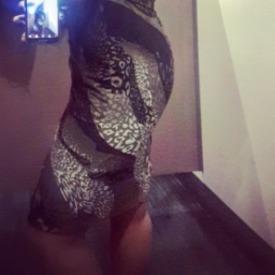It makes me sad...
astronomicals
Posts: 1,537 Member
... to see all the people who suffer through low calorie diets.
In the end you will destroy your metabolism and do severe damage to your health. The most unfortunate part is that almost everyone will gain all the weight back because of how it was lost. If done correctly, you could have probably lost FAT at nearly the same pace, while retaining your muscle and keeping your metabolism up.
After these people hit their goal weights, and shift their diet, they gain all the weight back and usually dont try again. It saddens me that they are so excited as the weight comes off and they have no idea the damage they are doing and what the ultimate outcome will be... All that hard work and suffering and the end result will be you'll be just as fat and even less healthy than before.
I guess the other alternative is they continue the diet forever and become anorexic.
Sometimes all I can do is shake my head because people just don't listen.
ETA: I'm talking about people eating at 6-7 calories (or less) per pound of body weight between the ages of 20-40 while also doing exercise (and not eating said calories)
for example , the 27 year old 200# girl eating 1200-1400 calories
These are not exact ranges... they are examples
In the end you will destroy your metabolism and do severe damage to your health. The most unfortunate part is that almost everyone will gain all the weight back because of how it was lost. If done correctly, you could have probably lost FAT at nearly the same pace, while retaining your muscle and keeping your metabolism up.
After these people hit their goal weights, and shift their diet, they gain all the weight back and usually dont try again. It saddens me that they are so excited as the weight comes off and they have no idea the damage they are doing and what the ultimate outcome will be... All that hard work and suffering and the end result will be you'll be just as fat and even less healthy than before.
I guess the other alternative is they continue the diet forever and become anorexic.
Sometimes all I can do is shake my head because people just don't listen.
ETA: I'm talking about people eating at 6-7 calories (or less) per pound of body weight between the ages of 20-40 while also doing exercise (and not eating said calories)
for example , the 27 year old 200# girl eating 1200-1400 calories
These are not exact ranges... they are examples
0
Replies
-
1) This is true.
2) I appreciate the sentiment.
3) Be prepared for hordes of low-calorie dieters to charge in and start defending their low calorie diet.0 -
If you have any peer reviewed studies to support what you're saying that would be awesome. Otherwise, you just seem to be trolling.0
-
PREACH IT MY BROTHA...
Tracking what I eat is one of the best thing I've ever done. How can you expect the changes to last a lifetime, if you are eating in a way you can keep up for the rest of your life?0 -
If you have any peer reviewed studies to support what you're saying that would be awesome. Otherwise, you just seem to be trolling.
I'm not sure what specific low calorie number he's talking about, but for simplicitys sake, we can argue below MFP's minimum of 1200. (Which often isn't enough, but it's a lowball, minimum number.)
One doesn't need peer reviewed studies to know that undereating can cause a host of physical and mental problems - gone on long enough, death.0 -
If you have any peer reviewed studies to support what you're saying that would be awesome. Otherwise, you just seem to be trolling.
^ oh please!!! get real and get out of town I AM THE PROOF. now study that ish0 -
Is it trolling to post a commonly held belief?If you have any peer reviewed studies to support what you're saying that would be awesome. Otherwise, you just seem to be trolling.0 -
 0
0 -
^^^^lmmfaooo0
-
-
Very few people who need to hear this are going to really listen. Sadly, many people just measure their success by the number on the scale and not anything else. They don't care to learn anything else either.
Let it go and move on to help those who are willing to listen and learn. It'll save your own sanity.
Also, agree with BusyLady. Food is yummy!0 -
I'm proof as well. I never went lower than 1400 to 1500 and got to the bottom of my weight range. Of course, I also discovered I'm small boned, now that some are partially visible. It could be genetics, but it could also be smart planning and following a healthy diet. I've had no problem maintaining that loss for almost two years.
I now maintain on 2100 calories a day or thereabouts, so it's pretty easy. I just make better food choices as opposed to going without.0 -

Curse you! I have that same gif and was saving it to use sometime! But now I can't cuz you made it cool first! :sad:0 -
Everyone is different. I went low cal to lose and I had no issue adjusting that number back up to maintain. My metabolism didn't suffer any damage. I have seen studies that show that even after months of controlled fasting the metabolism is only reduced by about 180 calories a day in an overweight individual so your advise may be right for you but not for everyone.0
-
AMEN!! 1200 is insufficient for anyone above the age of what....12? I don't need peer reviewed studies. I have my own body to tell me. At 1200 calories, I lost a little water weight and then promptly hit a plateau for weeks. I went to 1400 and started losing .2 one week, .4 the next. I went to 1600 and I lost 3 lbs. last week.
So there's your peer reviewed study. I'm your peer, and I reviewed it.0 -
1) This is true.
2) I appreciate the sentiment.
3) Be prepared for hordes of low-calorie dieters to charge in and start defending their low calorie diet.
This ^0 -
If you have any peer reviewed studies to support what you're saying that would be awesome. Otherwise, you just seem to be trolling.
http://www.ncbi.nlm.nih.gov/pubmed/12675647
http://www.bodyrecomposition.com/fat-loss/permanent-metabolic-damage-qa.html
Or watch this video/rant by Dr. Layne Norton http://www.youtube.com/watch?v=QHHzie6XRGk
http://www.youtube.com/watch?v=QHHzie6XRGk
Nearly all the peer reviewed studies of VLCD ( very low calorie diets) are done with the very obese. The reasoning is that they are the only group where then ends justify the means. There isn't studies of normal overweight people because its foolish and there isn't even a point of doing a study.
If you've ever read and studies you'd realize that a large majority of them have all sorts of poorly controlled variables and the results are often biased. Also, a majority of the tests done are never done on humans. Getting humans to follow a specific diet and get reliable results is way easier said than done. In reality, such studies are slim to none. People like you act as if there has been a study on everything. This isn't Nazi Germany. We don't do torturous studies just to disprove ridiculous theories. The research will never be done. Ever.
One of our best resources is what we've seen within the population of the fitness world. That's the essence of "bro science". We don't need peer reviewed studies because the evidence is all around us. People do these types of diets and and have been bouncing back for years. The damage you've done won't result in a tattoo on your forehead that says "less healthy than before". There are plenty of obvious cases of metabolic damage that have been seen but the exact science behind it isn't concrete.
I'm not here to spoon feed you. It's much harder to debate the existence of a fact than it is for you to just use silly attacks to discredit it. To be honest, I don't care if you become anorexic. It's still sad though.
People defend their VLCD like many researchers defend their claims. In the face of opposition people protect their opinions like it was their child. Many people would rather do something wrong than admit they're wrong. At the end of the day you have to choose who you wish to believe.0 -
Can you please specify how big of a deficit you're talking about?
1000 cals/day deficit is a pretty common, but aggressive plan. I don't think there are many out there advocating going much beyond that.0 -
I agree.
For once, I have to say this is one of your better posts I've seen recently. There is a lot of truth to what you are saying.0 -
If you have any peer reviewed studies to support what you're saying that would be awesome. Otherwise, you just seem to be trolling.
Who needs science? Sixty-two thousand four hundred repetitions make one truth. 0
0 -
If you have any peer reviewed studies to support what you're saying that would be awesome. Otherwise, you just seem to be trolling.
You're joking right?0 -
If you have any peer reviewed studies to support what you're saying that would be awesome. Otherwise, you just seem to be trolling.
A troll is someone who posts something deliberately inflammatory. I do not think this qualifies.0 -
Everyone is different. I went low cal to lose and I had no issue adjusting that number back up to maintain. My metabolism didn't suffer any damage. I have seen studies that show that even after months of controlled fasting the metabolism is only reduced by about 180 calories a day in an overweight individual so your advise may be right for you but not for everyone.
Its definitely not universal advice... You also said you adjusted the number back (which is crucial)... It's hard to say much else without knowing what your weigth, age, and intake were.... But, you're absolutely right, not everyone is the same. The problem is you have morons who read posts like yours and they think they have the same lovely genetics and that everything will be just fine and dandy. Odds are, it wont.0 -
What this all comes down to is....are you a dieter or are you a lifer?
A dieter loses a tremendous amount of weight, fighting through plateaus to eventually reach their goals. They are so hell bent on reaching the finish line, they have no concept of what long term is all about. Nearly all of them find out that this is unsustainable, and then immediately gain it all right back. Dieters know how to diet. What they don't learn, is how to live. I did this for years, only to be more depressed and beaten down each time I failed.
And then there are the lifers. You see many of them here around you. They eat a normal deficit to reach their goals, bump up to maintenance level calories, and continue on. For life.0 -
If you have any peer reviewed studies to support what you're saying that would be awesome. Otherwise, you just seem to be trolling.
Ask and ye shall receive:
http://www.nature.com/ijo/journal/v31/n2/full/0803523a.html
There are tons more similar articles out there. I'd suggest a Google scholar search for "adaptive thermogenesis" and you'll have more than enough late night reading to keep you busy for a while.0 -
Can you please specify how big of a deficit you're talking about?
1000 cals/day deficit is a pretty common, but aggressive plan. I don't think there are many out there advocating going much beyond that.
added to bottom of original post.... people do 1000 calorie deficits thinking that its whats needed to lose 2 pounds a week... it doesnt work like that and it never will... ive lost 2.5# a week on a 500 calorie deficit... That sentiment of 7000 calorie deficit to lose 2 pounds a week is nothing but trouble..0 -
What this all comes down to is....are you a dieter or are you a lifer?
A dieter loses a tremendous amount of weight, fighting through plateaus to eventually reach their goals. They are so hell bent on reaching the finish line, they have no concept of what long term is all about. Nearly all of them find out that this is unsustainable, and then immediately gain it all right back. Dieters know how to diet. What they don't learn, is how to live. I did this for years, only to be more depressed and beaten down each time I failed.
And then there are the lifers. You see many of them here around you. They eat a normal deficit to reach their goals, bump up to maintenance level calories, and continue on. For life.
Well stated0 -
If you have any peer reviewed studies to support what you're saying that would be awesome. Otherwise, you just seem to be trolling.
Ask and ye shall receive:
http://www.nature.com/ijo/journal/v31/n2/full/0803523a.html
There are tons more similar articles out there. I'd suggest a Google scholar search for "adaptive thermogenesis" and you'll have more than enough late night reading to keep you busy for a while.
thx.. reading0 -
If you have any peer reviewed studies to support what you're saying that would be awesome. Otherwise, you just seem to be trolling.
http://www.ncbi.nlm.nih.gov/pubmed/12675647
http://www.bodyrecomposition.com/fat-loss/permanent-metabolic-damage-qa.html
Or watch this video/rant by Dr. Layne Norton http://www.youtube.com/watch?v=QHHzie6XRGk
http://www.youtube.com/watch?v=QHHzie6XRGk
Nearly all the peer reviewed studies of VLCD ( very low calorie diets) are done with the very obese. The reasoning is that they are the only group where then ends justify the means. There isn't studies of normal overweight people because its foolish and there isn't even a point of doing a study.
If you've ever read and studies you'd realize that a large majority of them have all sorts of poorly controlled variables and the results are often biased. Also, a majority of the tests done are never done on humans. Getting humans to follow a specific diet and get reliable results is way easier said than done. In reality, such studies are slim to none. People like you act as if there has been a study on everything. This isn't Nazi Germany. We don't do torturous studies just to disprove ridiculous theories. The research will never be done. Ever.
One of our best resources is what we've seen within the population of the fitness world. That's the essence of "bro science". We don't need peer reviewed studies because the evidence is all around us. People do these types of diets and and have been bouncing back for years. The damage you've done won't result in a tattoo on your forehead that says "less healthy than before". There are plenty of obvious cases of metabolic damage that have been seen but the exact science behind it isn't concrete.
I'm not here to spoon feed you. It's much harder to debate the existence of a fact than it is for you to just use silly attacks to discredit it. To be honest, I don't care if you become anorexic. It's still sad though.
People defend their VLCD like many researchers defend their claims. In the face of opposition people protect their opinions like it was their child. Many people would rather do something wrong than admit they're wrong. At the end of the day you have to choose who you wish to believe.
Didn't realize you were talking about VLCD (commonly defined as 40% of TDEE). Also, that ONE study you posted concluded the following:the results indicate that 8 weeks of VLCD treatment may be effective and well tolerated in symptomatic obese patients with T2DM in secondary failure, producing sustained cardiovascular and metabolic improvements after 1 year. VLCD therapy is a treatment option that deserves greater consideration in this difficult-to-treat patient population.
So I'm not really sure what your point was with that.
I assumed you were talking about a low calorie diet not a very low calorie diet (1200 calories vs 800 or less calories)
Believe me, I'm at no risk of becoming anorexic any time soon.
I lost 50 lbs on a 1200 calorie diet five years ago. I maintained that loss for 4 years at a normal caloric level. I gained back a total of 10 lbs of that stress eating through a divorce, move halfway around the country, change in careers during the fifth year. I am now losing from what was my initial goal to my ultimate goal. I have no doubt that I won't have a problem maintaining that loss I spent most of my life fit. I also have not lost any LBM (as measured by DEXA scans).
Again, though, apparently you are talking about a VLCD which is a very different thing. You may not need peer reviewed studies but I don't trust anecdotal evidence because, well, it's anecdotal. Just the way my mind works.
Not sure if you've ever tried to look into any research but here are a few of thousands of studies.
http://diabetes.diabetesjournals.org/content/35/2/155.short
Very low calorie diet, mostly fat lost minimal protein lost
http://ajcn.nutrition.org/content/54/1/56.short
VLCD 580 cal no decrease in RMR
http://archinte.jamanetwork.com/article.aspx?articleid=609705
Diet of 424 calories safe
http://intl.jacn.org/content/18/2/115.short
With Resistance training, LBM and RMR were maintained even on 800 cal/day diets
http://ajcn.nutrition.org/content/38/1/20.short
With higher calories, lean body mass loss was within expected ranges for any weight loss
http://www.sciencedirect.com/science/article/pii/0026049594900051
Lean body mass stays the same even with VLCD with higher protein levels
http://europepmc.org/abstract/MED/8383636
Minimal lean body mass lost at 800 calories. Standard amount of body fat vs. lean body mass loss with weight loss.
http://onlinelibrary.wiley.com/doi/10.1038/oby.2001.134/full
Long term weight loss success with VLCD
http://link.springer.com/article/10.2165/00007256-200636030-00005
VLCD with increased protein and strength training promotes maintenance of lbm and RMR
I'm not saying that losing on higher calorie diets isn't healthy or possible (because that would just be silly). All I'm saying is that your claims have been proven untrue time and time again. For those people who actually are anorexic or following VLCDs, deficiencies in nutrition are a major concern and can certainly lead to LBM loss and decreases in RMR. An LCD, not so much.
I'm happy with my weight loss and whatever you chose to do or chose to believe I hope it's good for you, as long as you work towards your goal you will eventually succeed. The day someone shows me a study that says that LCDs cause any detriment to health or the day I get a DeXA scan that shows LBM loss, I will certainly bump my calories up. Until then, I'm getting plenty of healthy food, maintaining strength and LBM and should lose the rest of this weight within the next 3 months (including the time reverse dieting to get back up to maintenance calories) and that makes me happy.0 -
added to bottom of original post.... people do 1000 calorie deficits thinking that its whats needed to lose 2 pounds a week... it doesnt work like that and it never will... ive lost 2.5# a week on a 500 calorie deficit... That sentiment of 7000 calorie deficit to lose 2 pounds a week is nothing but trouble..
How many consecutive weeks did you lose 2.5#/week at a 500 cal/day deficit?
Do you also gain 2.5 #/week if you eat 500 cal/day in excess of your TDEE?0 -
I've been reading about bodybuilding. The thing they do is eat above their TDEE while lifting, to gain muscle and a bit of fat. Then they eat under their TDEE while lifting to lose fat and a bit of muscle. Each time they go through a cycle, they have a higher amount of muscle and a lower amount of fat.
What I realized, and have never seen it said, is that yoyo dieting is the inverse of this. It's body-unbuilding. People eat above their TDEE while watching TV to gain a bunch of fat and a little muscle. Then they eat way below their TDEE while watching TV or doing a bunch of cardio, and lose a bunch of muscle and fat. Each time they go through a cycle, they have a higher amount of fat and a lower amount of muscle. It's body recompsition, going in the wrong direction.
By the time people have shed so much of their muscle while losing weight, there's little left to support any kind of reasonable food intake, so they are stuck with either never eating like a real person again, or gaining a bunch of weight back again. (Or lifting heavy to build some muscle back, but it seems this is not often enough a consideration because people, especially women, are afraid of getting "bulky.")0
This discussion has been closed.
Categories
- All Categories
- 1.4M Health, Wellness and Goals
- 398.1K Introduce Yourself
- 44.7K Getting Started
- 261K Health and Weight Loss
- 176.4K Food and Nutrition
- 47.7K Recipes
- 233K Fitness and Exercise
- 462 Sleep, Mindfulness and Overall Wellness
- 6.5K Goal: Maintaining Weight
- 8.7K Goal: Gaining Weight and Body Building
- 153.5K Motivation and Support
- 8.4K Challenges
- 1.4K Debate Club
- 96.5K Chit-Chat
- 2.6K Fun and Games
- 4.8K MyFitnessPal Information
- 18 News and Announcements
- 21 MyFitnessPal Academy
- 1.5K Feature Suggestions and Ideas
- 3.2K MyFitnessPal Tech Support Questions
















